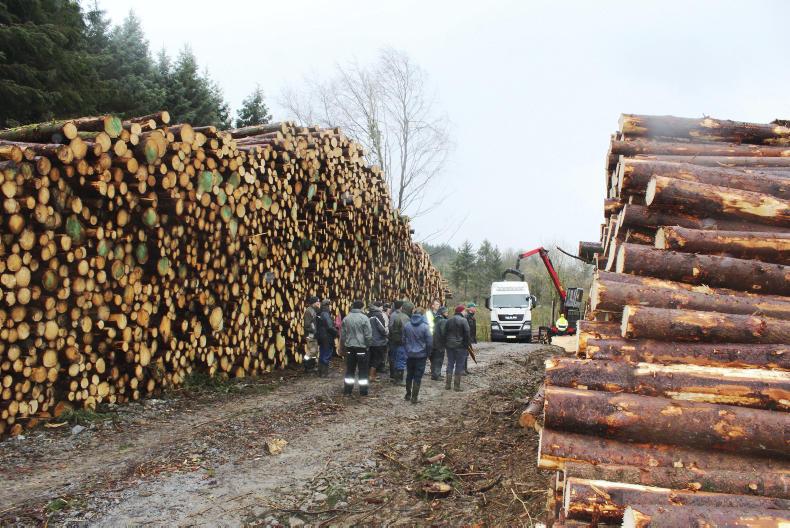The introduction of the Support Scheme for Renewable Heat earlier this year was designed to encourage medium sized businesses to start using renewable heat technology based on boilers that burn wood chips. The scheme has the potential to create opportunities for forest owners and forest producer organisations to mobilise forest biomass and create local biomass trade hubs, if supported properly.
The idea of a biomass trade hub might be new to Ireland, but it is a long-established model that has been successfully supplying rural communities with local wood fuel for years elsewhere in Europe. The benefits for forest management, forest owners, rural communities and the environment are well recognised.
Biomass
Biomass trade hubs are an innovative way to develop and organise local biomass supply. They are regional centres that are operated by local forest owners or forest entrepreneurs, that optimise logistics and trading organisation, where different biomass fuels (firewood, chips, pellets and energy crops) are marketed at guaranteed quality and prices.
The marketing of biomass fuel through the hubs adds value for both forest owners and customers, who benefit from the bundled, high quality supply of local wood fuels. Through a network of biomass trade hubs, customers can be sure that supply for their heating systems is guaranteed over the long-term.
The energy supply of tomorrow will be based on a regional supply model, displacing imported fossil fuels. The biomass trade hubs create an important added value for customers, the local farmers that own and operate the hubs and the local communities. The hubs also contribute to the creation of rural jobs.
Incentives
Direct incentives are urgently required to increase the pace and scale of biomass mobilisation and to provide infrastructural support to develop biomass trade hubs. These include incentives to encourage the establishment of regional yards, where biomass can be sorted into multiple feedstock assortments and pre-processed. Moreover, for biomass producers, yards could also ensure that machinery could be utilised effectively year-round.
Forest owners are the key actors in wood mobilisation. They must be supported, as it is their forests and their willingness to engage that will increase forest harvesting and ensure the sustainable supply of wood biomass in the long term. Properly functioning forest producer organisations play a major role in mobilising wood from fragmented private forest holdings, but they need support, not just at the initiation stage, but to build further capacity in the supply chain.
Given the increased global demand for forest biomass, it would be prudent for the Government to provide greater supports to private forest owners to develop community-based biomass trade hubs, which have proven to be a great success, especially in rural areas.
The most essential aspect of any biomass energy project is the resource assessment. Without the establishment of regional biomass trade hubs, it will be virtually impossible for bioenergy project developers to get long term contracts for consistent feedstock supply at a reasonable price.
Geraldine O’Sullivan is Executive Secretary, IFA Forestry Committee.






 This is a subscriber-only article
This is a subscriber-only article










SHARING OPTIONS: